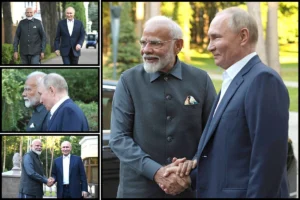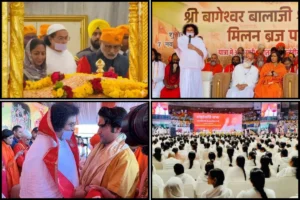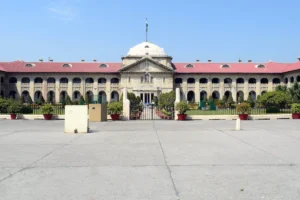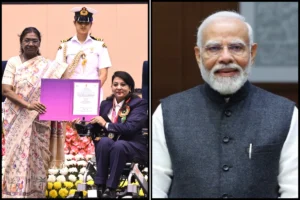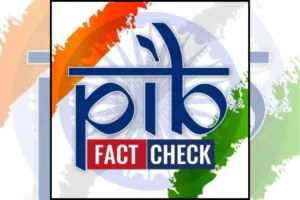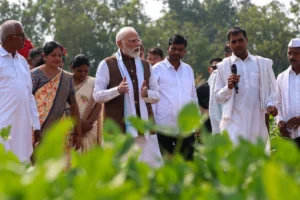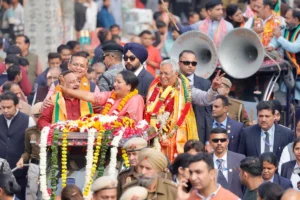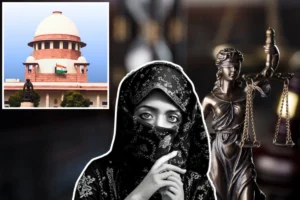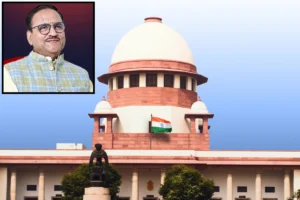
A Delhi court on Tuesday sentenced former Congress leader Sajjan Kumar to life imprisonment for his role in the killings of a father and son during the 1984 anti-Sikh riots in Saraswati Vihar.
His conviction in the case was announced on 12 February.
Special Judge Kaveri Baweja pronounced the life sentence under IPC Section 302 (murder) read with Section 149 (unlawful assembly).
The court imposed an additional life term under Section 436 (mischief by fire) for destroying property.
The Rouse Avenue court on 21 February reserved its decision on the sentencing of former Congress MP Sajjan Kumar in the 1984 Anti-Sikh Riots case.
Riot victims had pushed for the death penalty, arguing that the crime warranted the harshest punishment.
Sajjan Kumar is already serving a life term from his 2018 conviction by the Delhi High Court in another case linked to the riots.
Senior advocate HS Phoolka, representing the victims, appeared online to submit written arguments, urging the court to impose the death penalty.
Additional Public Prosecutor (APP) Manish Rawat also pressed for capital punishment, citing past judgments, including the Nirbhaya case.
He asserted that the case fell under the rarest of rare category, highlighting that attackers targeted individuals from a specific community without provocation.
Manish Rawat further stated that the incident shattered communal trust and harmony, deeply impacting the social and religious fabric of society.
On 31 January, after hearing additional arguments from the prosecution, the court reserved its verdict.
Case Background
The case pertains to the killings of Jaswant Singh and his son Tarundeep Singh in Saraswati Vihar on 1 November 1984.
Advocate Anil Sharma, defending Sajjan Kumar, claimed that authorities named his client in the case only after a 16-year delay. He further argued against applying laws from foreign jurisdictions.
Furthermore, he pointed out that Kumar’s 2018 conviction by the Delhi High Court is currently under appeal before the Supreme Court.
Referring to arguments made by Phoolka, Sharma maintained that even in extraordinary circumstances, Indian law must take precedence over international legal principles.
Countering the defense’s claims, APP Manish Rawat argued that the accused was initially unknown to the victim, and she identified him only after seeing his photograph in a magazine.
Phoolka further asserted that investigations into the anti-Sikh riots were manipulated to shield those responsible. He stressed that due to the extraordinary nature of the riots, cases must be examined in that context.
Phoolka cited a Delhi High Court ruling, stating that the case was not an isolated incident but part of a larger massacre and a form of genocide.
He cited official figures showing that approximately 2,700 Sikhs lost their lives in Delhi during the 1984 riots.
Additionally, Phoolka referred to the Delhi High Court’s judgment in the 1984 Delhi Cantonment case, where the riots were classified as ‘crimes against humanity’.
He argued that genocides specifically target minority communities and emphasized the Supreme Court’s seriousness regarding delayed justice, which led to the formation of a Special Investigation Team (SIT).
SIT Investigation & Findings
The SIT re-examined the case following the Justice GP Mathur Committee’s recommendations and found that officials had prepared a charge sheet against Sajjan Kumar in 1992 but never filed it.
This, Phoolka argued, demonstrated police efforts to protect the accused.
On 1 November 2023, Sajjan Kumar recorded his statement in court, denying all charges.
The Punjabi Bagh police station initially registered the case before the SIT took over the investigation.
On 16 December 2021, the court framed multiple charges against Kumar, including rioting, arson, and murder under Sections 147, 148, 149, 302, 308, 323, 395, 397, 427, 436, and 440 of the IPC.
According to the SIT, Kumar allegedly led a mob that looted and set fire to homes, killing Jaswant Singh and his son Tarundeep Singh.
The investigation also uncovered witness statements detailing the attack, including injuries sustained by other family members.
One key witness, in a statement recorded in 2016, recounted the mob violence and confirmed she saw Kumar’s photograph in a magazine a month and a half after the incident.
The 1984 riots broke out following the assassination of Prime Minister Indira Gandhi by her Sikh bodyguards on 31 October 1984.
The violence led to the deaths of over 2,800 people in Delhi alone.
Also Read: SC Reserves Verdict On Plea For Independent Probe Into Assam Police Encounters
To read more such news, download Bharat Express news apps








